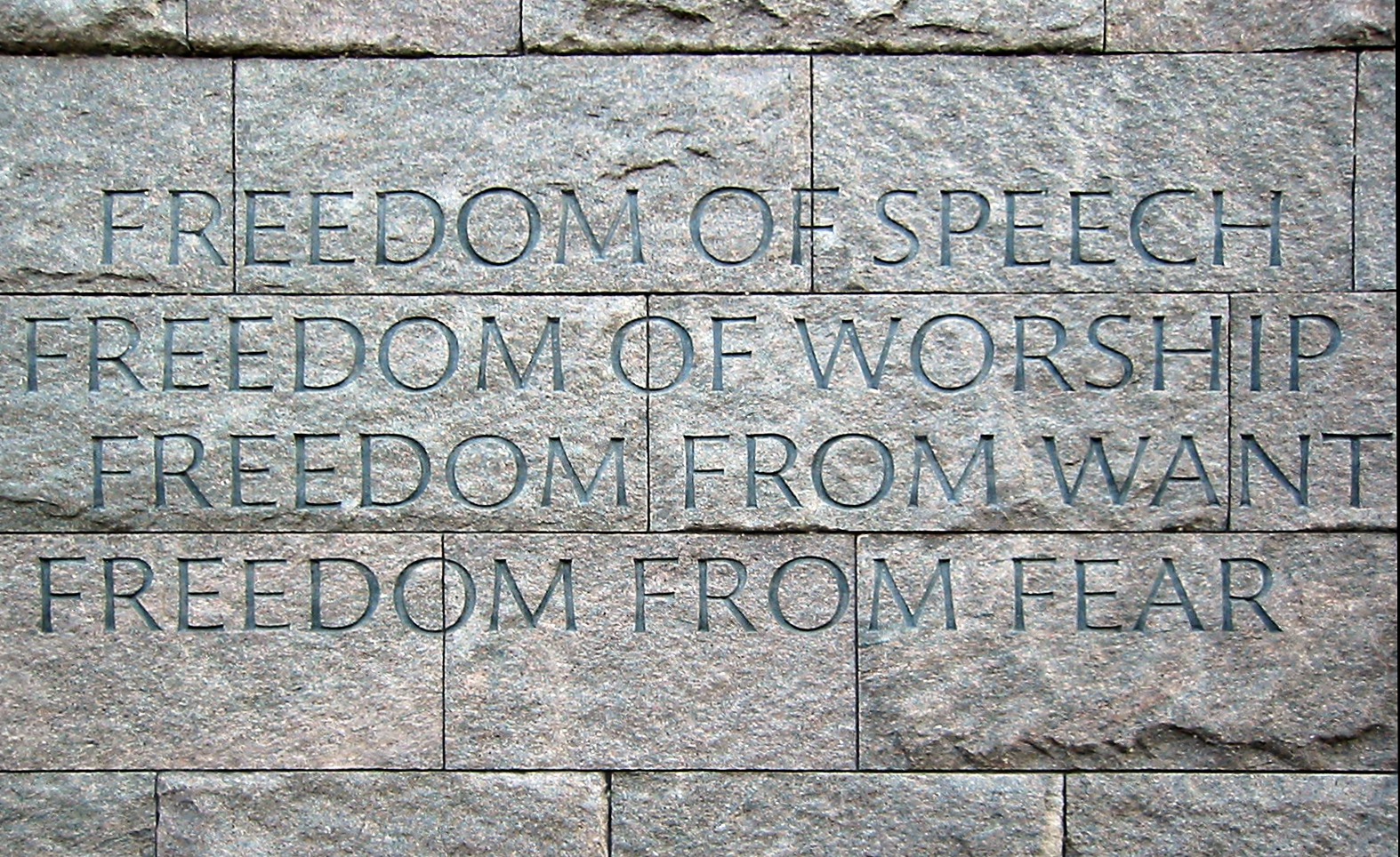In 1977, a neo-Nazi group announced its intentions to march through a predominantly Jewish community in Skokie, Illinois. The marchers intended to wear Nazi uniforms and display swastikas through a neighborhood where one in six people were Holocaust survivors. Speech doesn’t get much more hateful than that.
Ultimately, the American Civil Liberties Union (ACLU) controversially defended the group’s right to freedom of speech and freedom of assembly before the Supreme Court, in the case known as National Socialist Party of America v. Village of Skokie. It was ruled that the use of the swastika is a form of free speech, protected by the First Amendment. The National Socialist Party of America was allowed to march.
Hate speech is protected speech. It should be understood that the First Amendment protects speech, no matter how offensive or outrageous the content. Freedom of speech is an indivisible right, meaning that we don’t protect speech for some groups while prohibiting speech for other groups. When one person is denied this right, we are all denied the right, which is why we must fight unceasingly to protect this right.
Furthermore, it is vital to distinguish between hate speech, which is protected, and hateful conduct, which is not. Conduct that targets an individual, such as violence, harassment, intimidation, or invasions of privacy are, and ought to be, prohibited. These offenses are rightfully punished, because as a nation we have recognized the distinction between hate speech and harmful actions against an individual.
By defending the neo-Nazis in Skokie, the ACLU protected all Americans’ right to freedom of speech. It is not easy to defend such despicable speech. Perhaps no one understood this more clearly than the then ACLU Executive Director Aryeh Neier, whose relatives were killed in the Holocaust.
On the Skokie case, he commented, “Keeping a few Nazis off the streets of Skokie will serve Jews poorly if it means that the freedoms to speak, publish, or assemble any place in the United States are thereby weakened.”
The best way to combat bad speech is with better speech. In the marketplace of ideas, where all speech is protected and allowed to circulate, hateful speech must be overcome by better speech. Banning hate speech does not stop hateful thoughts.
Hate speech is a symptom, not the cause. By allowing hate speech to bubble up to the surface of public discourse, we can combat it by responding with better speech. We cannot suppress hate speech and allow it to fester, angry and unseen. The only way to change minds and hearts is by speaking openly and responding directly.
We must remember this lesson as we confront offensive speech on college campuses. In a September issue of Wesleyan University’s school newspaper, The Argus, an opinion piece was published criticizing the Black Lives Matter movement. The op-ed, penned by student Bryan Stascavage, was met with a swift response by the Wesleyan campus.
Freedom of speech is an indivisible right, meaning that we don’t protect speech for some groups while prohibiting speech for other groups.
Students demanded apologies from The Argus, and a petition called for the defunding of the paper. Copies of the newspaper were allegedly burned. Instead of this reactionary response, perhaps students could have combated the offending speech by penning their own opinion pieces. Flood the marketplace of ideas with better speech, and in that way, students can enact real, positive social change. This cannot be accomplished by stifling speech we find to be offensive.
In the ensuing ruckus at Wesleyan, The Argus’ budget was slashed. I cannot comprehend why students believe that suppressing freedom of speech and freedom of the press is the best way to advance their cause. By ensuring that the circulation of the paper is reduced, students have effectively harmed a potential outlet for their own, better speech.
The best way to combat bad speech is with better speech. In the marketplace of ideas, where all speech is protected and allowed to circulate, hateful speech must be overcome by better speech.
I implore readers, if you find my speech offensive, if you disagree with me, pen your own opinion pieces and combat my bad speech. Write a letter to the editor! But please, don’t take lessons from Fahrenheit 451 and burn speech you disagree with. This is not how we make great and lasting societal change.
A final thought, from John Stuart Mill, in his influential work On Liberty:
“The peculiar evil of silencing the expression of an opinion is, that it is robbing the human race; posterity as well as the existing generation; those who dissent from the opinion, still more than those who hold it. If the opinion is right, they are deprived of the opportunity of exchanging error for truth: if wrong, they lose, what is almost as great a benefit, the clearer perception and livelier impression of truth, produced by its collision with error.”
